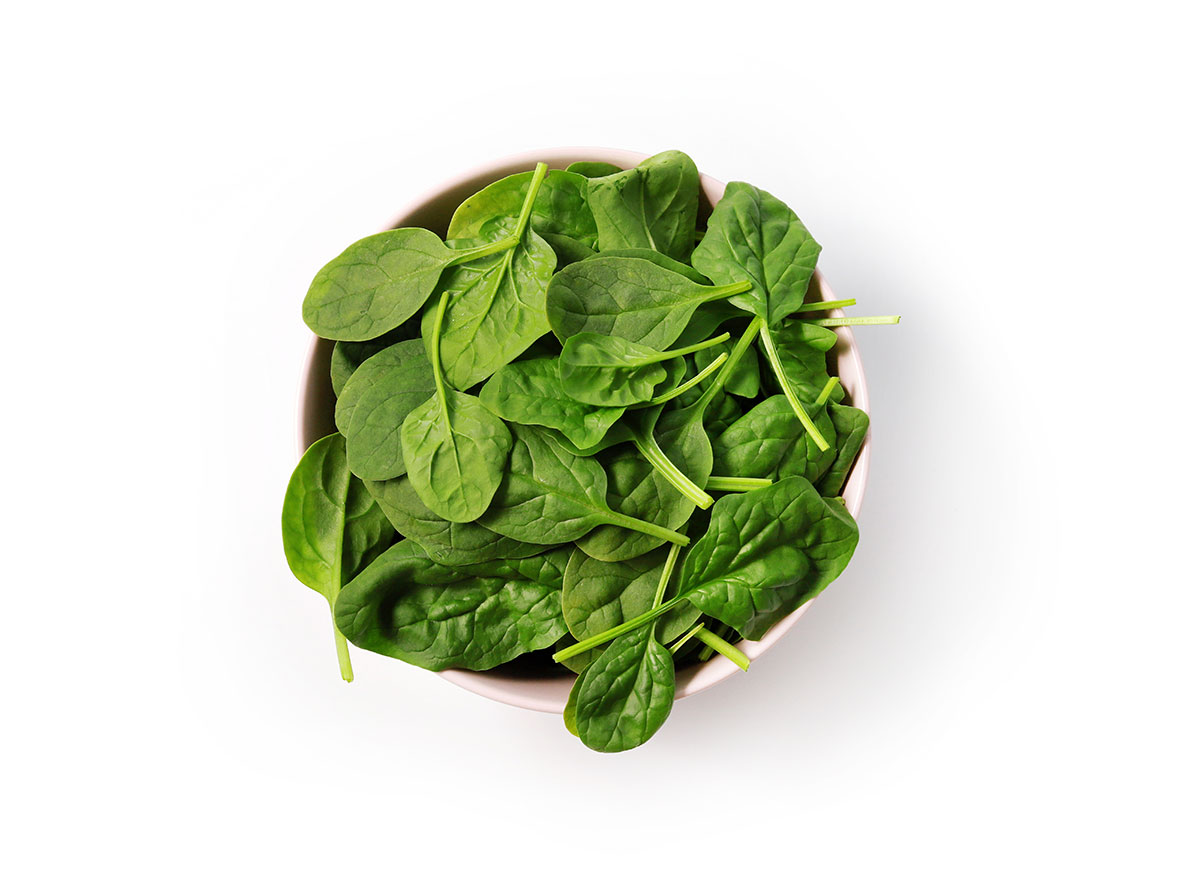Popeye may have overpromised the benefits of eating spinach, but perhaps only by a little.
The leafy green vegetable has been associated with helping to preserve your vision, lowering your blood pressure, and even, as the sailor man himself suggested, improving muscle function. Now, a new study suggests that there's another powerful benefit that could come from incorporating more spinach into your diet—it could protect you from colorectal cancer.
The study, published in the journal Gut Microbes, found that eating spinach can help prevent the formation of tumors in the colon. At least, that was the case for rats. Researchers at the Texas A&M University Health Science Center observed rats for 26 weeks, comparing the development of polyps (benign growths that could turn into cancerous tumors down the line) in those who ate freeze-dried spinach to the ones that didn't eat the leafy green.
The researchers found that spinach boosted the rodents' gut health, promoting biodiversity, which played a role in suppressing tumor growth.
In an interview with Eat This, Not That!, Kathy Siegel, MS, RDN, CDN, and author of The 30-Minute Clean Eating Cookbook and Eating Clean Vegetarian Cookbook, noted that the antioxidants in spinach make it a great addition to any diet.
"Past studies have shown that these protective compounds, along with the vitamin content in spinach, may promote cancer-protective properties," she said. "Spinach is rich in vitamin K, vitamin A, folic acid, manganese, magnesium, iron, vitamin C, B vitamins, omega-3 fatty acids, and dietary fiber."

While this is not hard evidence that adding spinach to your diet will prevent you from ever developing colon cancer, (no single behavioral change can offer that kind of certainty!) at the very least, it's a promising sign. And adding more spinach to your diet certainly doesn't hurt, unless you're taking certain medications like blood thinners that require you to keep your vitamin K intake low.
"Spinach isn't a 'magic' food. It's likely that if the same research was conducted with other leafy greens, it would show similar results," says Mascha Davis MPH, RDN, author of Eat Your Vitamins. "The key takeaway, I think, is to eat your vitamins, and to do it in many different forms, spinach being one excellent one."
Other foods that could make a difference in helping to prevent this potentially fatal disease include dairy products and whole grains, as well as, more surprisingly, red seaweed.
If colorectal cancer runs in your family, or if you suspect you may be at risk otherwise, make sure to speak to your physician. According to the CDC, some symptoms of colon cancer include loss of appetite, abdominal pain, bowel movement irregularities such as diarrhea, constipation, as well as other changes to your stool.
No comments:
Post a Comment